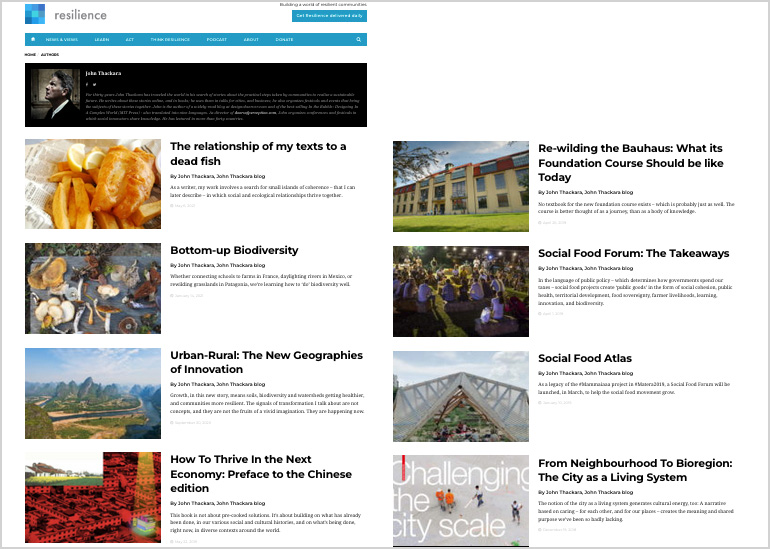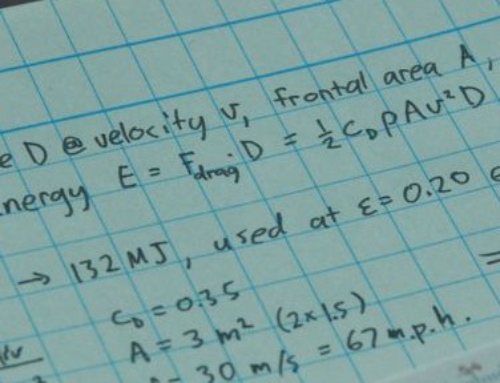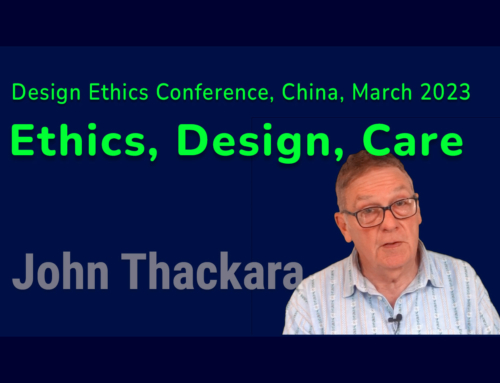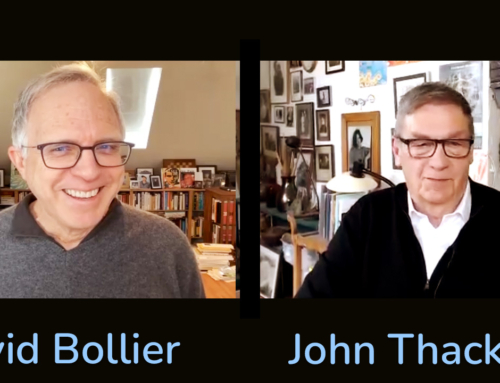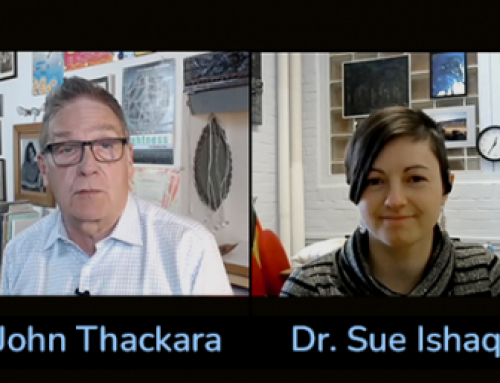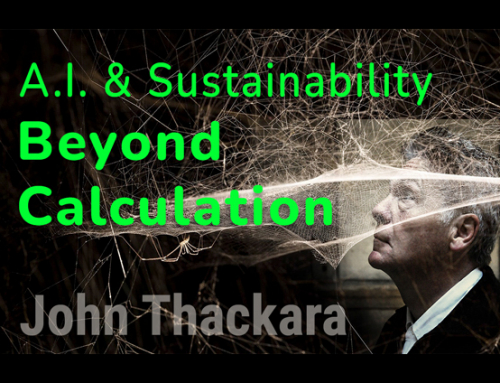Here is a collection of texts by John Thackara selected by Resilience magazine.
How To Thrive In the Next Economy: Preface to the Chinese edition
This book is not about pre-cooked solutions. It’s about building on what has already been done, in our various social and cultural histories, and on what’s being done, right now, in diverse contexts around the world. (May 2019)
Re-wilding the Bauhaus: What its Foundation Course Should be like Today
No textbook for the new foundation course exists – which is probably just as well. The course is better thought of as a journey, than as a body of knowledge. (April 2019)
Social Food Forum: The Takeaways
In the language of public policy – which determines how governments spend our taxes – social food projects create ‘public goods’ in the form of social cohesion, public health, territorial development, food sovereignty, farmer livelihoods, learning, innovation, and biodiversity. (April 2019)
From Neighbourhood To Bioregion: The City as a Living System
The notion of the city as a living system generates cultural energy, too: A narrative based on caring – for each other, and for our places – creates the meaning and shared purpose we’ve been so badly lacking. (December 2018)
Two-Wheeled Logistics: A City Manager’s To-Do List
Most of the component parts for ultra-light mobility ecosystems are on the table – from cargo bikes, to sharing platforms. Social and technical innovations are transforming relationships between people, goods, energy, space, and value. (September 2018)
Is Peak Car Headed for Seneca’s Cliff?
The bigger story now unfolding seems to be one of system transformation – a peak-car tipping point – that’s been slowly ‘brewing’ for a very long time. For the physicist Ugo Bardi, the decline of a complex system can be faster than its growth – an insight he attributes to the Stoic philosopher Seneca, who wrote: “Fortune is of sluggish growth, but ruin is rapid”. (January 2018)
From Gut to Gaia: The Internet of Things and Earth Repair
The way ahead will be based on a combination of knowledge obtained remotely, using modern tools and devices, and ways of knowing that are local, experienced directly, contextual, and embodied. When we connect with living systems emotionally, and not just rationally, and focus on the informal, the local and the conversational – things will really begin to change. (December 2017)
Back to the Land 2.0: A Design Agenda for Bioregions
A bioregion, in this sense, is literally and etymologically a ‘life-place’, in Robert Thayer’s words, that is definable by natural rather than political or economic boundaries. Its geographic, climatic, hydrological, and ecological qualities – its metabolism – can be the basis for meaning and identity because they are unique. (June 2017)
Rethinking the Modular Flow
Hive is just one example, among myriad human inventions, of a design approach that impedes inter-connectedness between the elements, and the whole, in healthy living systems. (June 2016)
